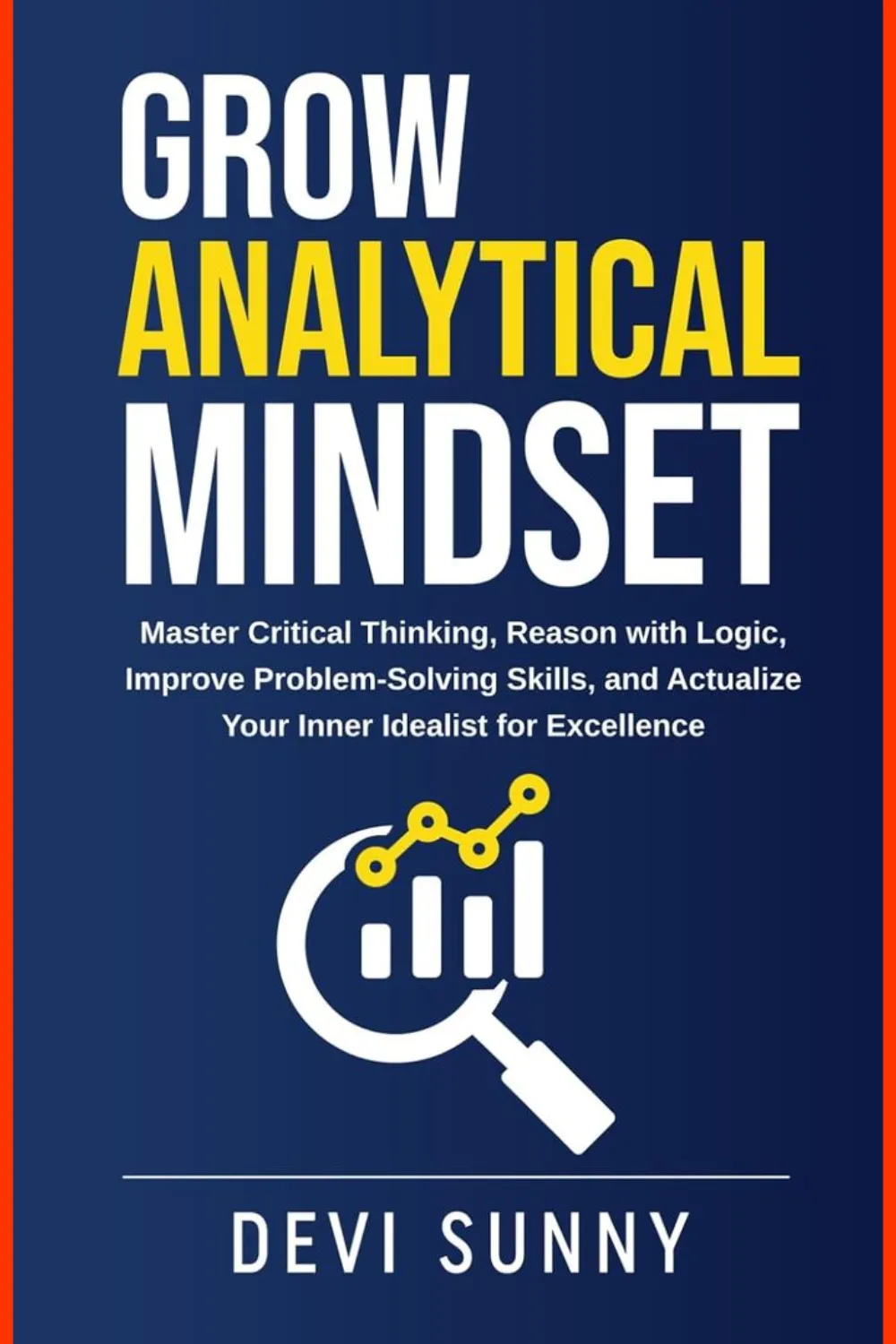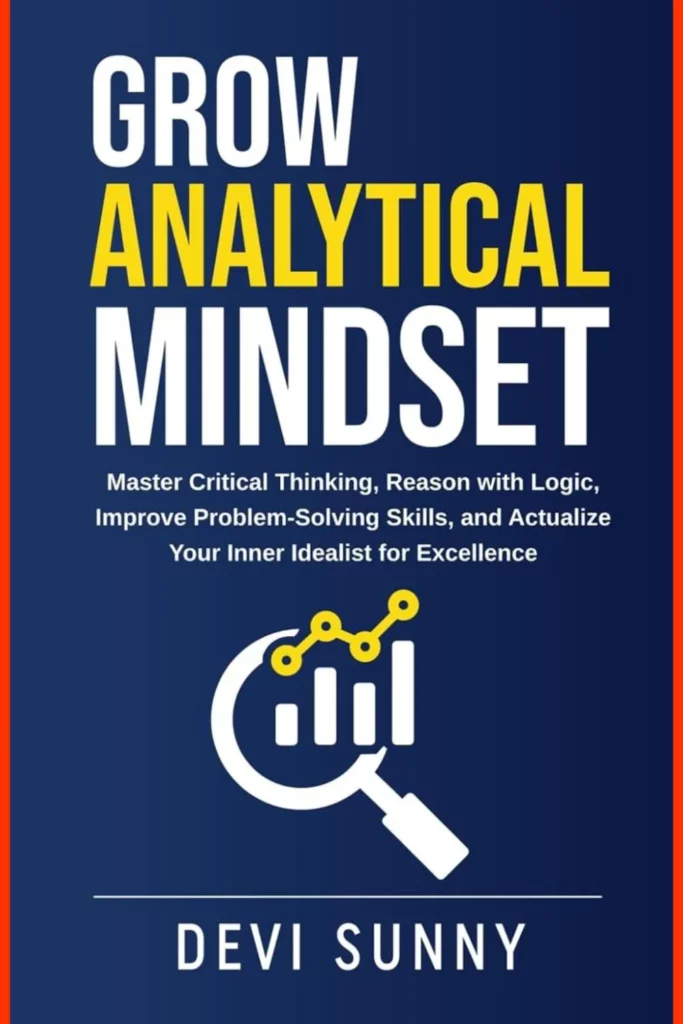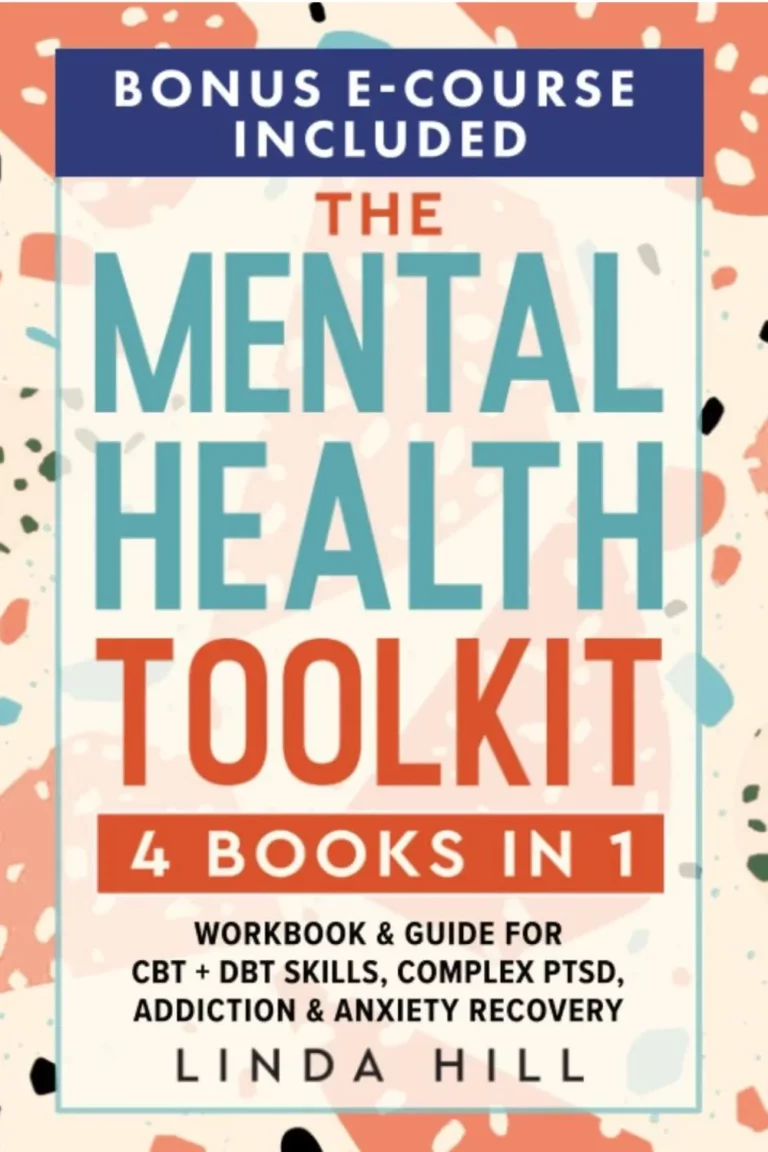Developing Your Analytical Skills
In today’s fast-paced and constantly evolving world, the ability to think critically and analytically is essential for success in any field.
Whether you are a student, a professional, or simply looking to improve your decision-making skills, developing strong analytical skills is crucial.
Critical thinking involves the ability to objectively analyze information, draw logical conclusions, and make informed decisions.
Despite its importance, many individuals struggle with developing their analytical skills, often due to a lack of understanding or practical application.
In this article, we will discuss practical tips for honing your critical thinking abilities and developing strong analytical skills.
From understanding the basics of critical thinking to applying these skills in everyday situations, we will offer insight and guidance on how to become a more effective critical thinker.
So, whether you are facing a complex problem at work or simply want to improve your decision-making abilities, read on to discover how you can develop your analytical skills and become a more efficient and successful critical thinker.
Table of Contents Developing Your Analytical Skills
Question assumptions and gather evidence
One essential skill for critical thinkers is the ability to question assumptions and gather evidence.
In any decision-making process, it is crucial to challenge the assumptions that are often taken for granted.
By doing so, we open ourselves up to new perspectives and possibilities.
It is not enough to rely on opinions or intuition alone; gathering evidence is vital to support our arguments and make informed judgments.
This involves seeking out reliable sources, conducting research, and analyzing data to gain a comprehensive understanding of the subject matter.
By questioning assumptions and gathering evidence, we can develop a more objective and well-rounded perspective, leading to more effective problem-solving and decision-making.
Analyze information objectively and thoroughly
In order to develop your analytical skills and enhance your critical thinking abilities, it is crucial to analyze information objectively and thoroughly.
This involves approaching data and evidence with a neutral mindset, free from personal biases or preconceived notions.
By examining information objectively, we can focus on the facts, evaluate the credibility of sources, and consider different perspectives.
Thorough analysis requires delving deeper into the available information, questioning its validity and relevance, and identifying any potential gaps or limitations.
Additionally, it is essential to consider the context in which the information is presented, taking into account various factors such as the source’s credibility, potential biases, and the potential influence of external factors.
By analyzing information objectively and thoroughly, critical thinkers can make well-informed decisions and draw accurate conclusions based on evidence and logical reasoning.
Identify patterns and connections
One key aspect of developing your analytical skills is the ability to identify patterns and connections within the information you are analyzing.
This involves recognizing similarities, trends, or relationships between different data points or pieces of information.
By identifying patterns, you can gain valuable insights and make more informed decisions.
This skill allows you to see the bigger picture and understand how individual components fit together to create a cohesive whole.
Whether it’s analyzing market trends, identifying customer preferences, or examining data sets, being able to identify patterns and connections is a valuable skill that can enhance your critical thinking abilities and contribute to your overall analytical prowess.
Evaluate sources and credibility
When conducting research or analyzing information, it is crucial to evaluate the sources and their credibility.
A reliable and trustworthy source provides accurate and unbiased information, which is essential for making informed decisions.
To assess the credibility of a source, consider factors such as the author’s expertise and qualifications, the publication or platform it is presented on, and the presence of supporting evidence or citations.
Additionally, cross-referencing information with multiple sources can help ensure its validity.
By critically evaluating sources, you can differentiate between reliable information and potentially misleading or biased sources, strengthening your analytical skills and enabling you to make well-informed judgments.
Consider multiple perspectives and viewpoints
When developing your analytical skills, it is important to consider multiple perspectives and viewpoints.
Embracing diverse opinions allows you to gain a comprehensive understanding of a subject and make more informed decisions.
By actively seeking out different viewpoints, you can broaden your knowledge and challenge your own preconceived notions.
This practice promotes critical thinking by encouraging you to analyze and evaluate various arguments, evidence, and reasoning behind different perspectives.
Additionally, considering multiple viewpoints fosters empathy and promotes constructive dialogue, leading to more well-rounded and comprehensive analyses.
By incorporating this approach into your analytical process, you can enhance your ability to think critically and make more nuanced and objective assessments.
Apply logic and reasoning skills
Effective critical thinking involves the application of logic and reasoning skills.
By honing these abilities, you can effectively evaluate information, identify patterns, and draw insightful conclusions.
Applying logic enables you to assess the validity and coherence of arguments, ensuring that your analyses are grounded in sound reasoning.
By employing systematic and logical thinking, you can identify potential biases, fallacies, or gaps in reasoning that may compromise the quality of your analysis.
Moreover, logical reasoning allows you to construct well-structured and persuasive arguments, supporting your ideas with evidence and ensuring clarity in your communication.
Continuously developing your ability to apply logic and reasoning will enhance your analytical skills and equip you with the tools to approach complex problems and make informed decisions.
Practice problem-solving and decision-making
As you embark on the journey of developing your analytical skills, it is crucial to practice problem-solving and decision-making.
This involves the ability to systematically approach challenges, break them down into manageable components, and formulate effective solutions.
By engaging in problem-solving exercises, you can enhance your ability to identify the root causes of problems, think critically about possible solutions, and evaluate their potential outcomes.
This iterative process of analysis and evaluation enables you to make informed decisions that are grounded in sound reasoning and supported by evidence.
Moreover, regularly engaging in problem-solving and decision-making exercises strengthens your ability to think quickly and adapt to changing circumstances, essential skills in today’s fast-paced and dynamic professional environments.
Continuously seek to improve skills
To truly excel in your analytical skills, it is imperative to adopt a mindset of continuous improvement.
This means never settling for the status quo and always striving to enhance your abilities.
Embracing a growth mindset allows you to view challenges as opportunities for growth and development.
Seek out new learning opportunities, whether it be through attending workshops, taking online courses, or joining professional networks.
Engage in self-reflection to identify areas where you can improve and set specific goals to work towards.
Additionally, seek feedback from mentors or colleagues to gain valuable insights and perspectives.
By consistently honing your skills and expanding your knowledge, you will become a more effective critical thinker and problem solver, positioning yourself for success in any professional endeavor.
In conclusion, developing and honing your analytical skills is a crucial aspect of becoming a successful and critical thinker.
By implementing practical tips such as asking questions, gathering evidence, and evaluating different perspectives, you can enhance your ability to analyze and make informed decisions.
Remember, critical thinking is an ongoing process and requires continuous practice and effort.
With dedication and perseverance, you can become a strong and effective critical thinker in both your personal and professional life.
So, keep questioning, keep analyzing, and keep challenging yourself to think critically.
The rewards will be worth it.
FAQ
What are some practical exercises or activities that can help improve analytical skills?
Some practical exercises to improve analytical skills include solving logic puzzles, playing strategy games like chess, analyzing data sets, debating different viewpoints, and practicing critical thinking through scenarios or case studies.
These activities challenge the brain to think critically, make decisions based on evidence, and problem-solve effectively, ultimately enhancing analytical skills.
Additionally, reading books on various subjects, attending workshops or seminars, and engaging in brainstorming sessions can also contribute to developing strong analytical abilities.
Regular practice and exposure to different analytical challenges will help sharpen these skills over time.
How can one effectively practice critical thinking in everyday situations?
To practice critical thinking in everyday situations, one can start by questioning assumptions, seeking out diverse perspectives, evaluating evidence, and considering the implications of different solutions.
It is important to not take information at face value, but rather analyze and interpret it with a skeptical mindset.
Engaging in discussions, solving problems, and making decisions based on logical reasoning and sound arguments can also help sharpen critical thinking skills in day-to-day scenarios.
Additionally, being open-minded, willing to reconsider beliefs, and continuously seeking to improve one’s ability to think critically are key aspects of effective practice.
What are some common pitfalls to avoid when trying to develop analytical skills?
Some common pitfalls to avoid when trying to develop analytical skills include over-relying on intuition, failing to consider alternative perspectives, focusing too narrowly on details, not seeking feedback or input from others, and neglecting to continuously practice and refine analytical abilities.
It is important to maintain a balanced approach, challenge assumptions, think critically, and stay open-minded to effectively enhance analytical skills.
How can seeking feedback from others help in improving analytical skills?
Seeking feedback from others can help improve analytical skills by providing different perspectives, identifying blind spots, and pointing out areas for improvement.
Feedback allows individuals to learn from others’ experiences, gain new insights, and refine their problem-solving approaches.
By understanding how others interpret information and analyze situations, individuals can broaden their analytical capabilities and develop more effective strategies for decision-making and critical thinking.
Constructive feedback also helps individuals to recognize their strengths and weaknesses, ultimately leading to continuous learning and growth in their analytical skills.
How can setting specific goals and milestones aid in the development of analytical skills?
Setting specific goals and milestones can aid in the development of analytical skills by providing a clear direction and focus for problem-solving.
Breaking down larger objectives into smaller, achievable milestones helps individuals develop a systematic approach to analyzing and solving complex problems.
By regularly assessing progress and adjusting strategies to meet these goals, individuals can enhance their critical thinking, decision-making, and problem-solving abilities.
This structured approach to goal-setting allows individuals to develop a more analytical mindset and improve their ability to evaluate information, identify patterns, and make informed decisions.








